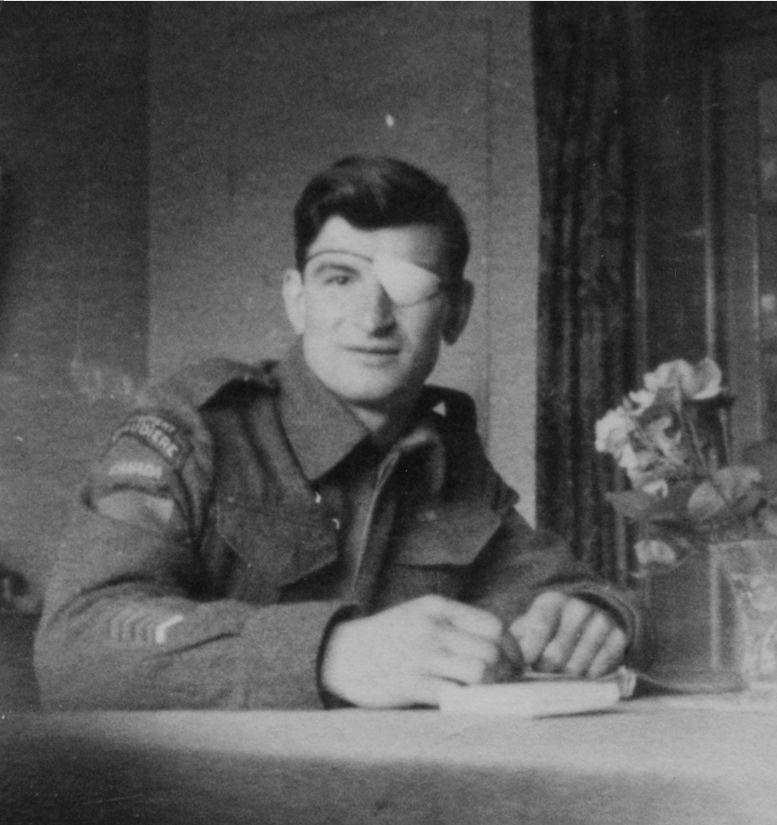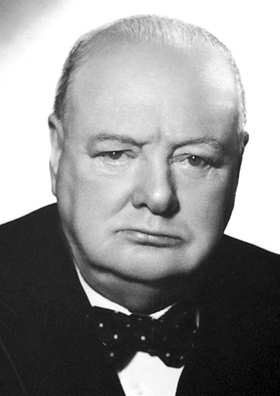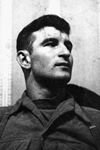Our War Leaders in Peacetime - Churchill
The War Illustrated, Volume 10, No. 236, Page 191, July 5, 1946.
Born at Blenheim Palace, Woodstock, Oxfordshire, in 1874, the eldest son of Lord Randolph Churchill (third son of the 7th Duke of Marlborough), the Rt. Hon. Winston Leonard Spencer Churchill, O.M., C.H., Leader of the Opposition in His Majesty's Government, has spent a lifetime in politics. Only four days after entering Parliament for Oldham in 1901 he made his first speech in the House. Since then he has consistently followed the tactics he adopted when a fencing champion at Harrow, and as Home Secretary at the siege of Sidney Street (January 3, 1911) – careful defence and direct attack.
He started talking politics to Lloyd George in the vestry at St. Margaret's, Westminster, after his marriage in 1908 to Clementine Hozier, daughter of a Guards colonel. For 38 years she has been his constant companion, accompanying him on many of his travels. With their youngest daughter, Mary, they returned to Chartwell, their Westerham home in the heart of the Kent hop country, in July 1945, from No. 10 Downing Street where, for five years, “Winnie” had reigned as Prime Minister, First Lord of the Treasury and Minister of Defence.
Their 35-years-old son, Randolph, is a major and former M.P. Diana, the eldest daughter, aged 36, is the wife of Duncan Sandys, Minister of Works under Churchill during 1944-45. Sarah, aged 31, is an actress. The youngest of the family, 23-years-old Mary, was recently (April 1946) demobilized from the A.T.S., in which she was a Junior Commander. Mr. and Mrs. Winston Churchill have four grandchildren.
As a young man polo, shooting, cricket, fencing and travelling were his favourite pastimes, and he admits he finds pleasure in public speaking. When, in February 1946, he made his ninth trip to the United States, New York newspapers recalled that Mark Twain presided at his first lecture there. He shares the practised actor's ability to memorize his “lines” easily. But into the preparation of every major speech goes hours of work, preferably in the quiet of the night, constantly polishing and altering until he is completely satisfied with the phraseology.
Churchill thinks the spoken word should be no less well chosen than the written word; and for fifty years, since he earned his first five guineas as a free-lance war correspondent in Cuba, writing has been among his hobbies. Also, he reads at an amazing pace, assimilating a book from cover to cover, his reading ranging from war strategy and parliamentary history to the Classics.
Although an amazingly energetic man, Winston Churchill has a great capacity for complete relaxation – so long as he has a cigar. Painting, he says, takes away tiredness in a very short time. No mean artist, he paints purely for pleasure and refuses to admit his canvases are worth hanging in his home; all but the best are bundled away in a boxroom. Indeed, he is much more proud of the garden wall he built at Chartwell (with a Bricklayers' Union card in his pocket!) than he is of many of the products of his brush.
Previous and next article from Our War Leaders in Peacetime
Our War Leaders in Peacetime - Slim
Famous leader of the 14th Army, General Sir William Slim, K.C.B., C.B.E., D.S.O., was the last of the war-generals to make the headlines. He abhors personal publicity. The latter fact is illustrated b
Our War Leaders in Peacetime - Wavell
As Viceroy of India, Field-Marshal Viscount Wavell, G.C.B., G.C.S.I., has little time for home life, and the loss to him must be a considerable one. But family anniversaries are duly honoured in turn
Index
Previous article
His Majesty's Ships - H.M.S. Kite
Motto: “Kite Flies to the Stars.” A war-built sloop of 1,735 tons, H.M.S. Kite was senior officer's ship of the celebrated Second Escort Group, commanded by Captain F. J. Walker, C.B., D.S.O.,
Next article
His Majesty's Ships - H.M.S. Renown
Motto: “Guardian of Ancient Renown.” A ship of 32,000 tons, launched on the Clyde in 1916, the Renown is the only remaining battle cruiser in the Royal Navy. She has a main armament of six 15-i






